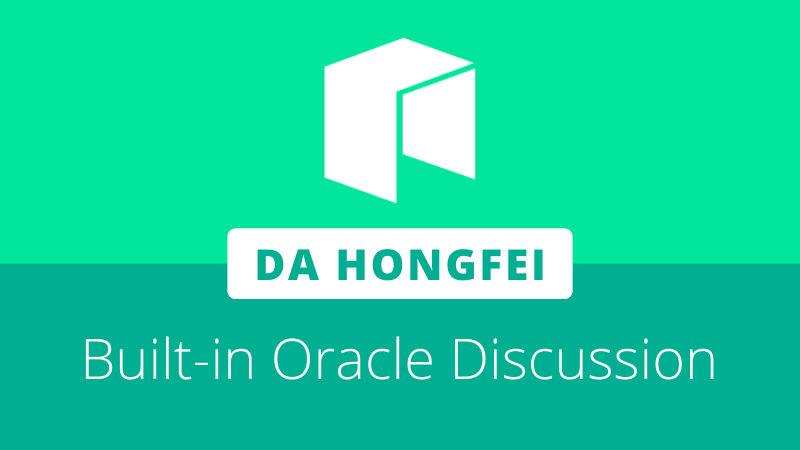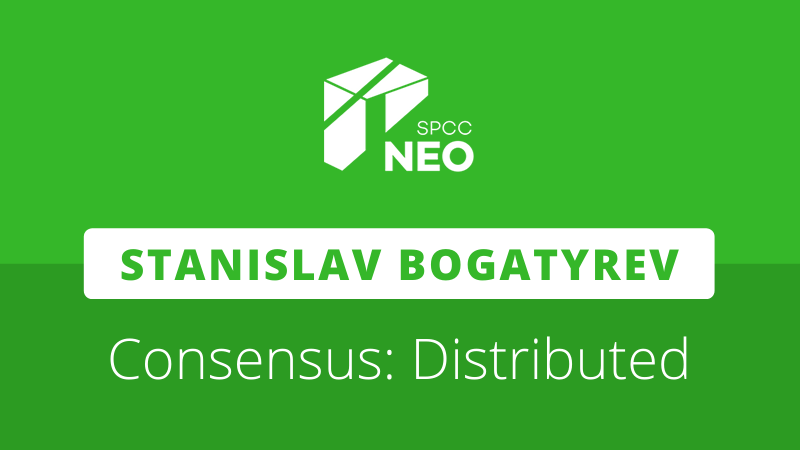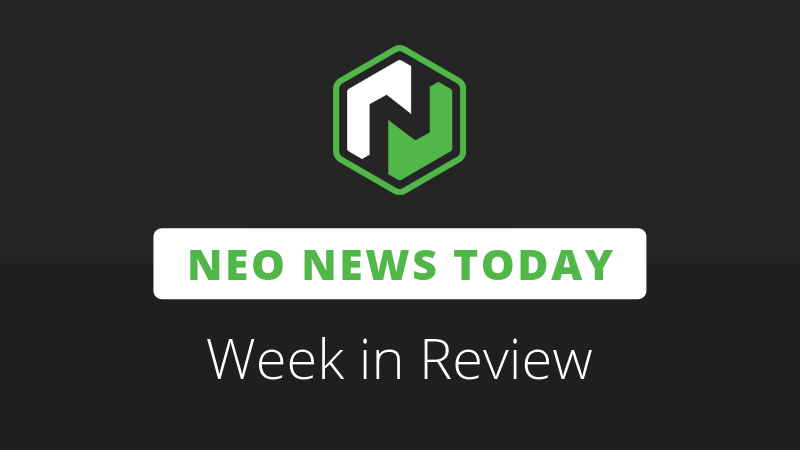
Neo co-founder, Da Hongfei, recently shared a series of tweets on the topic of Neo3’s built-in oracle service, currently under development. Da’s perspective was prompted by a recent discussion between Justin Drake, Vitalik Buterin, and others in the Ethereum community on a proposal for enshrined price feeds in Eth2.
Eth2 price feed proposal
The proposal by Drake suggested the addition of a simple price feed to the beacon chain of Eth2, tracking current exchange rates for a limited number of assets, namely, the fiat currencies USD, EUR, CNY, JPY, and GBP.
This service was intended to provide a reference value for other decentralized oracles that can offer finer granularity than the native price feed, functioning as a public service available for use on Eth1, Eth2, other blockchains, or even off-chain applications.
Although Drake’s proposal is limited in scope, dealing only with current prices for a small number of key assets, the underlying logic essentially amounts to a native Layer1 oracle service, operated by the validators on the Eth2 beacon chain. The beacon chain is responsible for managing Eth2’s Proof-of-Stake protocol and coordinates between shards.
Neo3 oracles
The proposal bears similarity to Neo’s endeavour to provide a built-in oracle service on Neo3, powered by the network’s validators as the source of trust. Neo’s oracles would act as a public utility by encapsulating key information from the Internet onto the blockchain for any applications that wish to make use of it.
However, as Da explains, the Neo3 oracle service will leverage dBFT to provide other unique advantages, and is designed for general applicability:
“Neo’s oracle is the only synchronous oracle design in current blockchain field. User request and Oracle response is atomic in nature, completed within a single block. This synchronous data fetching process optimizes times, network traffic and chain storage space used.”
“Moreover, what Neo’s built-in oracle provides is a general data transfer service. It offers developers an opt-in option to freely fetch any target URI rather than certain types of data (eg. price) from a specific domain (eg. exchanges).”
Although the Neo3 oracle is designed to be more flexible than the proposed enshrined price feed for Eth2, the similarities between the two as Layer1 oracle solutions means there are mutually applicable considerations to keep in mind.
Native oracle opposition
The most notable opposition to Drake’s price feed proposal came from Ethereum project founder, Vitalik Buterin, who shared numerous concerns. Some of these considerations—such as the potential compromization of Ethereum’s protocol neutrality by providing a unique service primarily for DeFi applications—are not applicable to the Neo3 oracle solution due to its general applicability.
Likewise, the risk of an increase in validator centralization, highlighted by Buterin, is less of a concern for Neo, where the service and oracle nodes will be managed by the Neo governance committee, voted in by NEO stakeholders.
This delegation means that most nodes on the network do not need to worry about maintaining an oracle and ensures that the oracle service benefits from the decentralization of Neo3’s consensus protocol, yet does not affect consensus itself.
However, Buterin also raises concern over an aspect that is applicable to Neo, highlighting a key philosophical difference between the two platforms:
“The Ethereum ecosystem benefits from having a strong application-layer token ecosystem, as opposed to a L1/ETH monopoly on all important functions.”
“I actually think that we should be moving in the opposite direction, explicitly limiting and circumscribing the function of the base layer, so as to deliberately leave space for the application-layer ecosystem to come up with these other tools.”
As Buterin explains, limiting Ethereum’s base layer functionality provides room for independent entities in the ecosystem to provide their own solutions. This philosophy is the underlying principle behind Ethereum’s cultural focus on purity, minimizing the base utility in the Ethereum protocol to maximize the potential for independent development.
Function monopoly or public utility?
The opposing viewpoint is embraced by the Neo ecosystem; important functionality such as off-chain storage, digital identity solutions, oracle services, and other tools are public goods that make life much easier for developers when included natively as part of the platform.
Dan Robinson, a research partner at blockchain-focused investment firm Paradigm, provided a comment which cuts to the heart of this perspective:
“The benefit of having this in the base layer is developer confidence that their contracts can rely on it existing forever. Oracles are one of the few intractable sticking points that force a project to include some upgradeability or governance.”
Da also addressed this concern, noting that Neo’s solution is opt-in and permissionless, meaning the choice to select an alternative service on Layer2 will always remain available for Neo developers:
“Neo’s oracle will operate as an opt-in function, thus offering developers the freedom to use and how to use the oracle service of their choice. And also, it won’t stop developers from choosing other layer-2 oracle services on their needs.”
“While Neo’s oracle service consumes GAS token and it’s less expensive than third party oracle in general, they just meet the needs of developers in different aspects and this market is still open to competition.”
Despite this, it should be noted that being opt-in may not fully address concerns that the native oracle system would “crush all competition.” Unlike the price feed proposal for Ethereum, which has a fixed granularity of 6.4 minutes and limited asset scope in order to leave an open playing field for other services, Neo3’s oracle service is designed to cover the majority of oracle use cases.
As such, the decision to natively support such functionality is likely to remain a fundamental difference between Neo and Ethereum. Though, as Buterin himself notes:
“If I were designing a new chain to live alongside bitcoin and ethereum, I would take *all* the political tradeoffs that BTC and ETH aren’t willing to take.”
More information on the design of the Neo3 built-in Oracle system can be found in our Road to Neo3 feature on the topic.







About The Author: Brett Rhodes
Brett is a blockchain enthusiast and freelance writer who originally began producing content for the gaming & eSports industries. Now he spends most of his time contributing in the Neo ecosystem.
More posts by Brett Rhodes